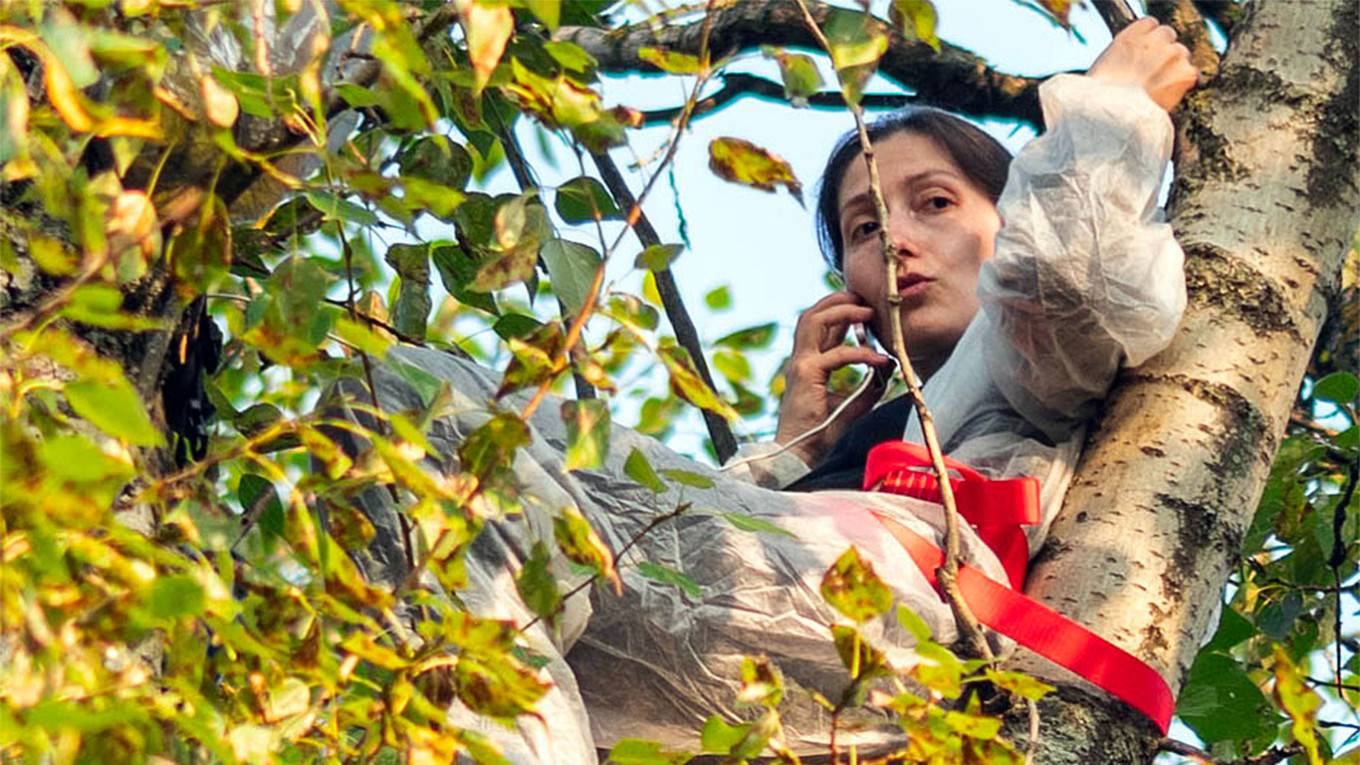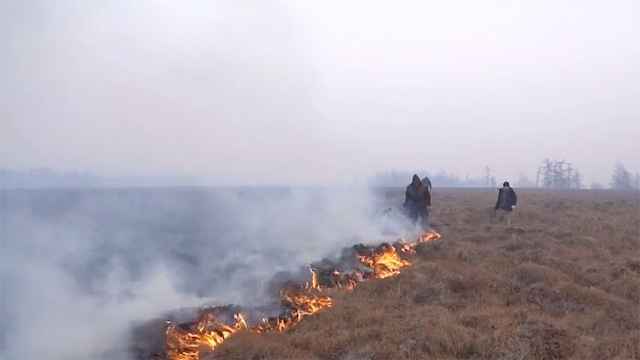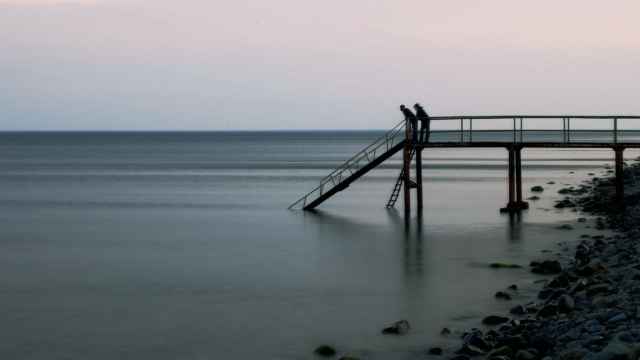"Three guys from the staff attacked me and started pulling off my clothes. Just like that. They told me to step on the scales — I said I refused medical intervention. And they started tearing my clothes off, injuring me, hitting me several times, threatening that they would put me in a straitjacket and inject me with something.”
This scene unfolded within the confines of the Yakovenko Moscow Regional Psychiatric Hospital, where Olga Kuzmina, an environmental, human rights and anti-corruption activist, underwent a psychiatric evaluation in July 2022.
Soon, Kuzmina could face an even more frightening ordeal: forced psychiatric treatment.
Her story is eerily reminiscent of the Soviet-era practice of punitive psychiatry, in which estimates suggest thousands, if not hundreds of thousands, of dissidents and suspected dissidents endured forced psychiatric treatment.
Today, this practice has made a comeback — and is increasingly deployed against environmental activists as pressures on eco-activism rise across the country, experts and activists told The Moscow Times.
The Environmental Crisis Group (ECG), a project supporting Russian environmental defenders, has documented over 300 cases of pressure — including criminal prosecution and punitive psychiatry — on more than 239 environmental activists and 19 organizations across 25 Russian regions in 2022 alone.
While the group reported five cases of forced psychiatry against ecological defenders during 2019-2022, there have already been three such cases in 2023 so far, ECG representative Vitaly Servetnik told The Moscow Times.
“It's one thing when an activist is arrested or fined — society perceives it as something familiar, given our repressive state,” Servetnik said.
“When people are labeled using psychiatry, it becomes more complex. In some professional circles, there is a term 'urban madmen.' This is a form of stigmatization of activists who care about injustices.”
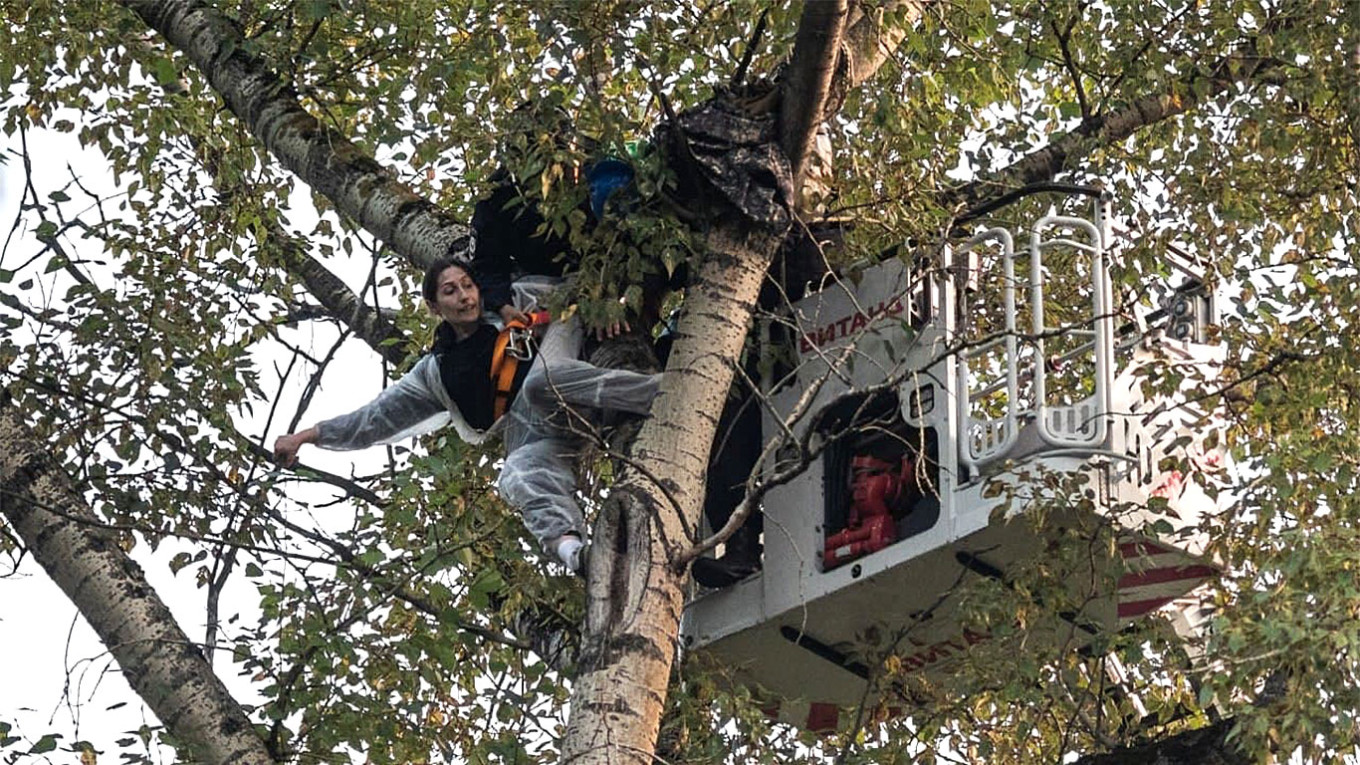
Moscow authorities started persecuting Kuzmina in August 2021, when she climbed some 20 meters into a tree in northeast Moscow’s Babushkinsky Park to protest the logging of a beloved green area near her home under the capital’s renovation program.
In a last attempt to save herself from resettlement and the remnants of the nearby green space, which she said was being encroached upon with forged papers, Kuzmina resorted to this public action after her efforts to find justice through bureaucratic means, including filing lawsuits, failed.
“[The developers] knew perfectly well that their documents were invalid — nevertheless, they did not stop,” Kuzmina told The Moscow Times. “Our district is an extension of Losiny Ostrov, a national park. It protects the national park from human impact.”
While Kuzmina’s protest was non-violent, media coverage paid particular attention to the fact that she carried a crossbow into the tree, distorting the image of her peaceful solitary picket.
State investigators later acknowledged that Kuzmina's crossbow was not a weapon and could be used for sports and recreation. Kuzmina said she only carried the crossbow, which was unloaded, for self-defense, as she had previously been attacked by police officers.
The eye-catching act of protest nonetheless led to a raid on Kuzmina’s apartment, criminal hooliganism charges and house arrest.
Nearly one year later, in July 2022, siloviki burst into Kuzmina’s apartment to take her for an examination at a psychiatric hospital in the Moscow region.
“They arrived, tricked their way into my apartment, forced open the door to the bathroom where I was hiding, and forcibly pulled me out,” Kuzmina said. “They didn’t have a single legal document, they simply abducted me.”
Kuzmina spent five days at the medical facility following the court’s decision on her involuntary hospitalization, a result of a trial that she said took place with numerous violations.
Hospital staff only conducted psychological tests, as she was not recognized as mentally incompetent and could refuse any medical intervention.
However, Kuzmina said she was held in improper conditions for her fourth-stage lymphedema, which requires a specific diet, mattress and an environment where she’s not around any contagious illnesses.
“The food there is like the stuff they give to livestock. I was so hungry, as much as one can be,” Kuzmina said. “They don't even feed you that poorly in prison, and I've been in detention centers. … It's terrible, the worst conditions I've ever been in."
In Russia, a criminal investigation may involve a psychiatric examination if the sanity of the accused is in question. If the examination determines the person was not sane while committing the alleged crime, the court can order forced psychiatric treatment.
This is precisely what happened in Kuzmina's case.
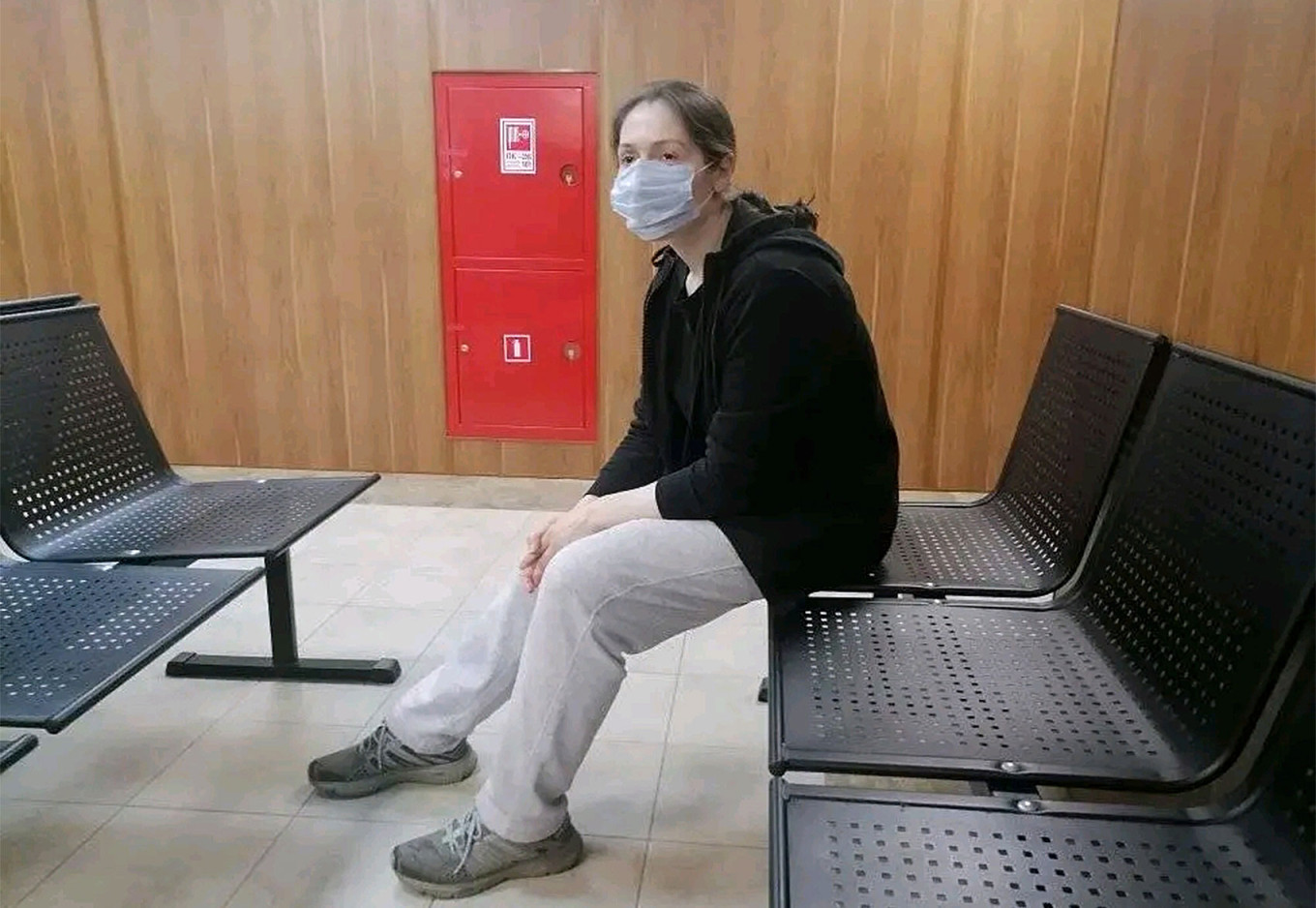
In August this year, the Babushkinsky District Court ruled to release her from criminal responsibility “due to insanity” and ordered her to undergo compulsory treatment at a psychiatric hospital.
According to the ruling obtained by The Moscow Times, the court argued that Kuzmina demonstrated “an open challenge to public order.”
Kuzmina linked this harsh treatment to her determined resistance to the authorities and businesses hoping to profit from Moscow development projects, pointing to the fact that she stands in the way of “billions of dollars.”
“I tried to turn to the press many times. Of course, I turned to all these so-called law enforcement agencies that we [Russians] simply don't have. We have neither courts nor law enforcement agencies, nothing. It's all one continuous rot."
Similar events have recently unfolded in Krasnoyarsk, an economic center in eastern Siberia 4,000 kilometers from the capital.
In October, a Krasnoyarsk court placed environmental and civic activist Yevgeniya Yelizaryeva in a psychoneurological dispensary for an examination of up to 30 days.
Formally accused of insulting an official — a criminal offense in Russia — Yelizaryeva linked the pressure to her active civic involvement on issues including waste management and her opposition to the construction of a radioactive waste facility in the region by state nuclear agency Rosatom.
“For over two months, myself, my civil partner and children have been abducted and subjected to humiliation of human dignity,” Yelizaryeva said in a video statement last month. “They break into our home, conduct searches, threaten to use firearms, fabricate administrative and criminal cases, secretly transport us to courts and psychiatric institutions.”
“If punitive psychiatric persecutions do not cease, I will be forced to apply for asylum abroad."
According to Servetnik, others have faced punitive psychiatry after taking part in protests where civil society achieved victories, such as the defense of Yekaterinburg’s garden square in 2019 or the republic of Bashkortostan’s Kushtau hill in 2020.
Beyond its traumatic impact on individuals, punitive psychiatry can be used to tarnish the reputation of environmental movements and sow fright among the engaged public, especially as Russia’s psychiatric system is even more closed than its penal system, Servetnik said.
“What happens to people there is completely unclear. The restriction of freedom, isolation, and the risks of medical intervention undoubtedly paralyze many people,” he said.
“People who have undergone [forced psychiatric treatment] are not ready to talk about it. And one of the individuals we spoke to said that it's a hundred times better to end up in pre-trial detention again than to go to [a psychiatric hospital].”
Similar to the Soviet era, when diagnoses of “sluggish schizophrenia” were used to explain why a person might disagree with the state, Kuzmina now faces the prospect of being forcefully placed in a psychiatric facility.
"[In Soviet times] they held healthy people for decades, it was just necessary to prove that these people disagreed with the authorities because they were psychos. Because a normal person could not disagree with such a wonderful government,” Kuzmina said.
“The same exact thing is happening now, except here it's not the authorities, but gangster anarchy."
While Kuzmina’s case is currently being considered by the higher court on appeal, not providing her much hope for a different ruling, the activist gives the impression of a person determined to defend her rights and her home until the end — even as she faces potential hospitalization and an uncertain future.
“I do not know what will happen next. To be honest, I cannot even imagine. I live each day in the present, and beyond that, I have no idea.”
A Message from The Moscow Times:
Dear readers,
We are facing unprecedented challenges. Russia's Prosecutor General's Office has designated The Moscow Times as an "undesirable" organization, criminalizing our work and putting our staff at risk of prosecution. This follows our earlier unjust labeling as a "foreign agent."
These actions are direct attempts to silence independent journalism in Russia. The authorities claim our work "discredits the decisions of the Russian leadership." We see things differently: we strive to provide accurate, unbiased reporting on Russia.
We, the journalists of The Moscow Times, refuse to be silenced. But to continue our work, we need your help.
Your support, no matter how small, makes a world of difference. If you can, please support us monthly starting from just $2. It's quick to set up, and every contribution makes a significant impact.
By supporting The Moscow Times, you're defending open, independent journalism in the face of repression. Thank you for standing with us.
Remind me later.


